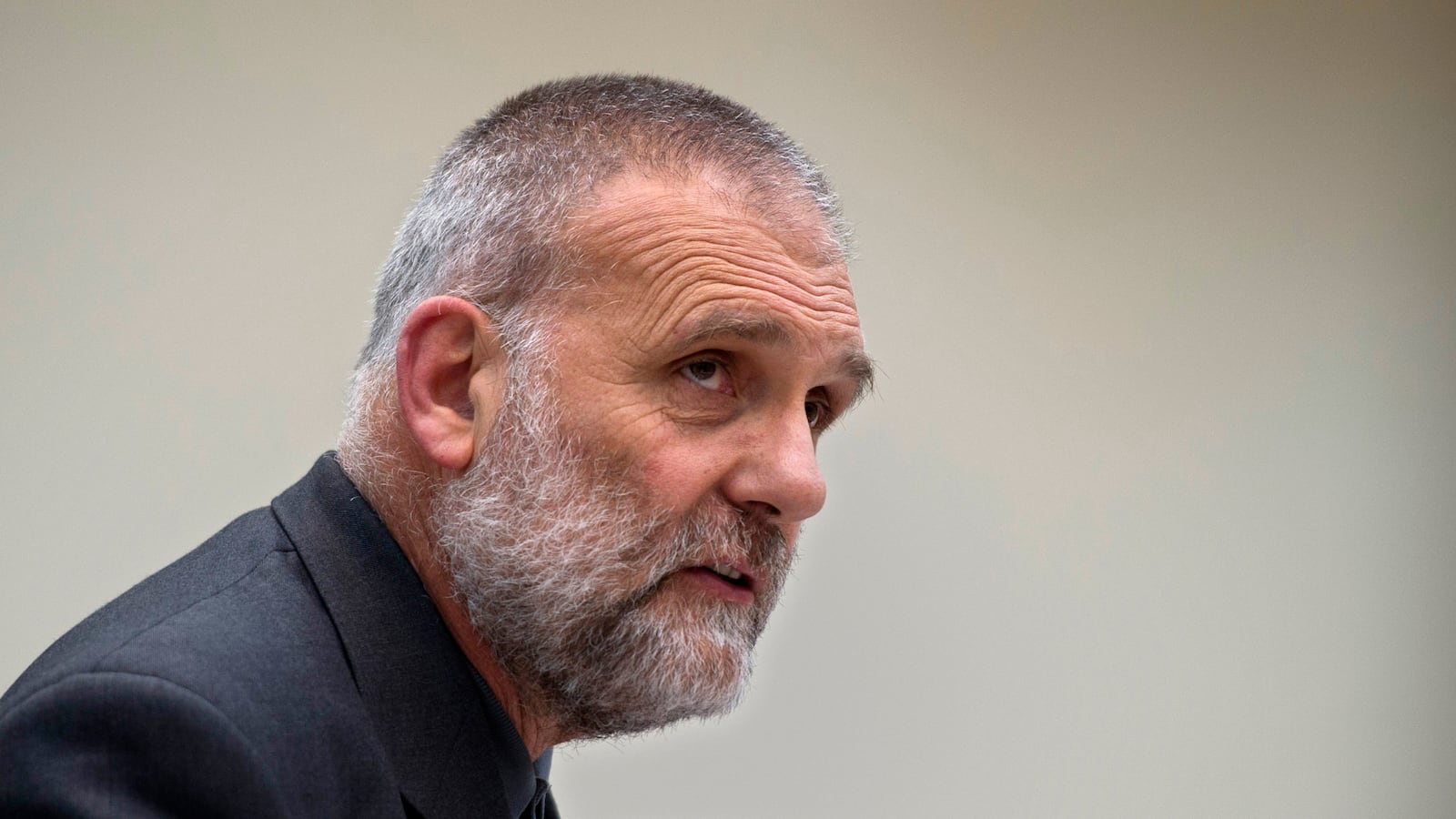An Italian Jesuit missionary, who dedicated his life to restoring an ancient monastery north of Damascus and championed the uprising against Syrian President Bashar al-Assad, may have been executed by Al-Qaeda-affiliated rebels, say opposition activists.

The 59-year-old priest, Paolo Dall’Oglio, who was expelled by Syrian authorities last year because of his vocal backing of the rebellion and for harboring dissidents, went missing on July 28 after slipping back into the country two days earlier to try to secure the release of hostages held by jihadists in the eastern Syrian city of Raqqa and to see if he could use his reputation to help broker a truce between rebel factions. His disappearance, which coincided with a rash of abductions in rebel-held areas this month, prompted immediate fears for his safety.
Activists initially said jihadists had kidnapped him, although some rebel commanders later said he was a “guest” of the jihadist leaders and was engaged in meetings discussing a ceasefire with Kurdish brigades.
Anxiety mounted on Monday when an Arabic website reported he had been executed by fighters with the Islamic State of Iraq and the Levant (ISIS), only for the report to be discounted by some activists and Vatican officials, who said they still believed the missionary was alive.
On Wednesday, though, the British-based monitoring group the Syrian Observatory for Human Rights, which relies on a network of activists inside Syria for information, announced that sources inside Raqqa believed he had been executed.
“Activists in the city, and who are close to Father Paolo, have confirmed that the Italian Jesuit priest and the messenger of peace Father Paolo Dall’Oglio has been killed while in the prisons of the ISIS, where he has been held for over two weeks,” the observatory said in a statement. The group cautioned, however, that it had not been able to verify the claim of his death independently.
The leader of the opposition party the Syrian National Front, Lama al-Atassi, also said she believed Dall’Oglio had been executed.
Spokesmen for the Vatican said they could not corroborate the Jesuit’s death and that they have no new information. The Apostolic Nuncio to Syria, Mario Zenari urged caution “until we have concrete news.” And Italian Prime Minister Enrico Letta said: “Unfortunately we have no news, we have no confirmation. We are anxious and are looking for information and contacts.”
The bearded, friendly Dall’Oglio first arrived in Syria in 1982 as a young Jesuit missionary, having left the Italian army a few years earlier. He dedicated himself to rebuilding the ruined sixth-century Syriac Catholic Monastery of Saint Moses the Abyssinian atop a mountain near the town of Nabk 50 miles north of Damascus, turning it into a center devoted to Muslim-Christian friendship.
A Western diplomat who spoke with the missionary shortly before he crossed last month from Turkey into Syria said Dall’Oglio was fully aware of the risks he was courting and of the deteriorating conditions inside rebel-held areas in Syria. “But he seemed convinced he would be fine and that he had to try to assist in brokering a deal between Kurdish insurgents and the jihadists.”
He endorsed the uprising against Assad from the start, dubbing it a “democratic jihad.” On the destruction the war wreaked on the country’s landmarks, Dall’Oglio said: “We have the old maps and plans; and we will rebuild and restore it once the regime falls. The most important thing is that the dictator leaves; the rest is easy.”
Dall’Oglio’s vision for an inter-faith democratic Syria is the opposite of the future as envisioned by the Al Qaeda leader he was trying to persuade to release hostages and agree a truce with rival rebel factions. Abu Bakr Al-Baghdadi earlier this year declared Syrians battling to oust Assad shouldn’t settle for democracy as the reward for their sacrifices but should embrace strict Islamic law (sharia) when the Syrian regime is finally defeated.
Al-Baghdadi is a highly effective if brutal leader. He was responsible for directing large-scale operations in Iraq such as the August 28, 2011 attack on the Umm al-Qura mosque in Baghdad that killed prominent Sunni lawmaker Khalid al-Fahdawi. He became notorious in Iraq before taking over the Al Qaeda leadership in Iraq for running Islamic courts to try locals for working with the Iraqi government and coalition forces and would sometimes abduct whole families. Those he found guilty were publicly executed.
Earlier this year he muscled in on the Al Qaeda-linked group Jabhat al-Nusra he helped establish in Syria, insisting the group come under his direct leadership and merge with his Iraq-based fighters to form ISIS. Since Al-Baghdadi’s arrival in Syria, jihadist atrocities have increased, say opposition activists.
Father Dall’Oglio isn’t the first Christian cleric to go missing in the two-year-long Syrian civil war, which has seen churches and Christian communities targeted by radical Islamists. In April, Syriac Christian archbishop, Yohanna Ibrahim, and his Greek Orthodox counterpart, Paul Yazigi, were seized in the province of Aleppo after gunmen shot dead their driver. But the Jesuit’s abduction appeared the most brazen kidnapping. The priest, a big promoter of interfaith dialogue in Syria, was cheered upon his arrival in Raqqa.
In an online video, the priest, who was nicknamed “Abuna Paolo” by Syrians, told locals: “God willing, Raqqa will be the first capital of free Syria.” On his Facebook page, the priest noted: “People here move about freely and in peace. I hope that that will be possible everywhere in Syria.” Shortly after writing those words, he disappeared after leaving the city to meet with the ISIS leader Abu Bakr Al-Baghdadi, according to opposition sources.
For Rami Abdul-Rahman, the head of the Syrian Observatory for Human Rights, the jihadist treatment of Dall’Oglio “goes against the principles of the Syrian revolution for freedom and dignity,” he said, criticizing rebel groups for “not prioritizing” efforts to secure his release. “We demand that all those responsible be held accountable and brought to justice,” he said.






